How To Start Reading (Again)
an extremely comprehensive guide on how to start reading for normal people who watch instagram reels
Last week, I wrote an essay about my relationship with reading and how I eventually realized that reading is the best thing ever. You can read that here. However with my busy schedule and fried attention span, finding the time and will to read for pleasure has been incredibly difficult. I have read many guides on how to start reading again, but I have found most advice to be extremely unhelpful. I wanted to share my guide of tips, tricks, and practical wisdom that I have compiled over the past several years, which has helped me read consistently.
I realize the subset of people on Substack, a platform dedicated to reading long-form content, might not be the people who need this guide, so feel free to send this to anyone you know and love who doesn’t read—I really just want more people to read.
Pick The Right Book
In order to develop that habit of consistently reading, the most difficult part is to finding the correct material to start.
There Are No “Right” Books
I once got it in my head that to be a smart person, I had to read the canon of “smart people books.” Don’t get me wrong; I still believe reading should be challenging in at least one aspect. But when I’m already struggling to find time to read, I do not need the added challenge of deciphering Dostoevsky, just yet.
There is a sweet spot of interesting books, difficult enough that they will challenge you to become a better reader, but also not so hard that they discourage you from reading at all.
Pick a topic you like to read about, anything from football to eastern philosophy. Anytime spent reading and not scrolling is objectively good. Release the need to read “correctly” and have fun.
Start Small
I used to be an incredibly strong reader back in the day. When I started reading again, I wanted to read 1Q84, a huge Murakami book. But I had fried my attention span so much that hundreds of pages of complex, layered translated Japanese prose just wasn’t happening. So naturally I’d get discouraged and watch Instagram reels instead.
If you haven’t gone to the gym in 10 years, you probably shouldn’t try to back squat 400 lbs just because you used to be able to back in your glory days as a high school linebacker. Similarly, reading is like training a muscle. If you stop reading, the muscle atrophies and you get bad at reading. Thankfully, the reading muscle is easy to rebuild!
Getting small wins under my belt through short stories and essays helped me strengthen my reading capacity so that I can now read anything I want.
How To Aquire A Book
I’m going to get incredibly granular here. In order to read, you need to have something to read! Here are some of my favorite methods of acquiring reading material as someone who loves reading and hates spending money:
The Public Library: I used to work at a public library! Libraries are awesome and full of amazing, knowledgeable librarians who will help you with all your reading needs, from recommending books tailored to your interests to helping you source an unfindable book. And it’s free, and paid for by your taxpayer dollars, so you should be at the library all the time!
Libby App: I no longer have a car and while I do live on a college campus where there are many libraries, for personal reasons you will never catch me in Leavey Library1 checking out books for leisurely reading. I do however still have an account at my old library and there is this wonderful thing called the Libby App that nearly every public library is enrolled in. From the app, you can access nearly every book in an e-reader format—you don’t need a Kindle, can read right on your phone, iPad, laptop, anything.
Secondhand Books: I love secondhand books, especially when they’re falling apart, the pages are yellowed, and the old owner has written notes throughout! I have discovered many new books by combing through thrift store shelves and swap meets: an incredibly low-cost way to start building a collection of physical books.
Buying New Books: If you really have to, I suppose you can go to a bookstore and purchase a brand new book. But I only recommend this if it’s a book you have already read and know you will reread many times. Books are expensive, and nothing will make you give up on a hobby more than realizing you have spent $200 on Penguin Classics hardcovers and have not touched a single one.
Take a Book With You Everywhere
Now that you have a book, take it with you everywhere! Whenever I have five or so minutes waiting for something, by instinct, I reach for my phone and look at Instagram and see people who are hotter and having more fun than me. When I have a book with me, I can replace that urge and read instead.2 Read at the airport, at the DMV, read everywhere!
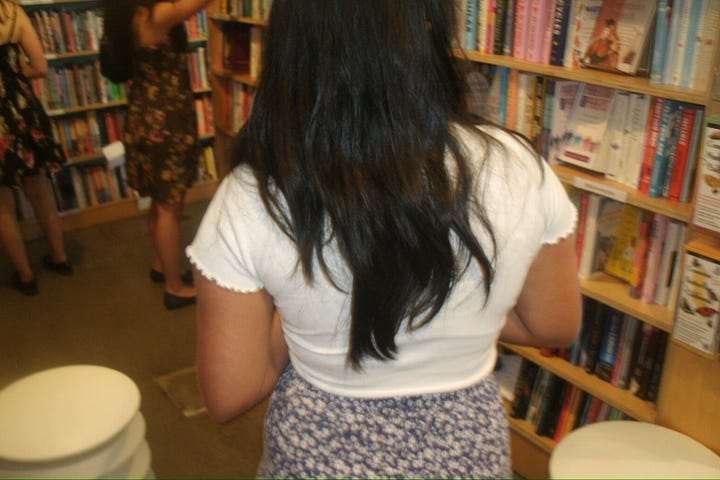
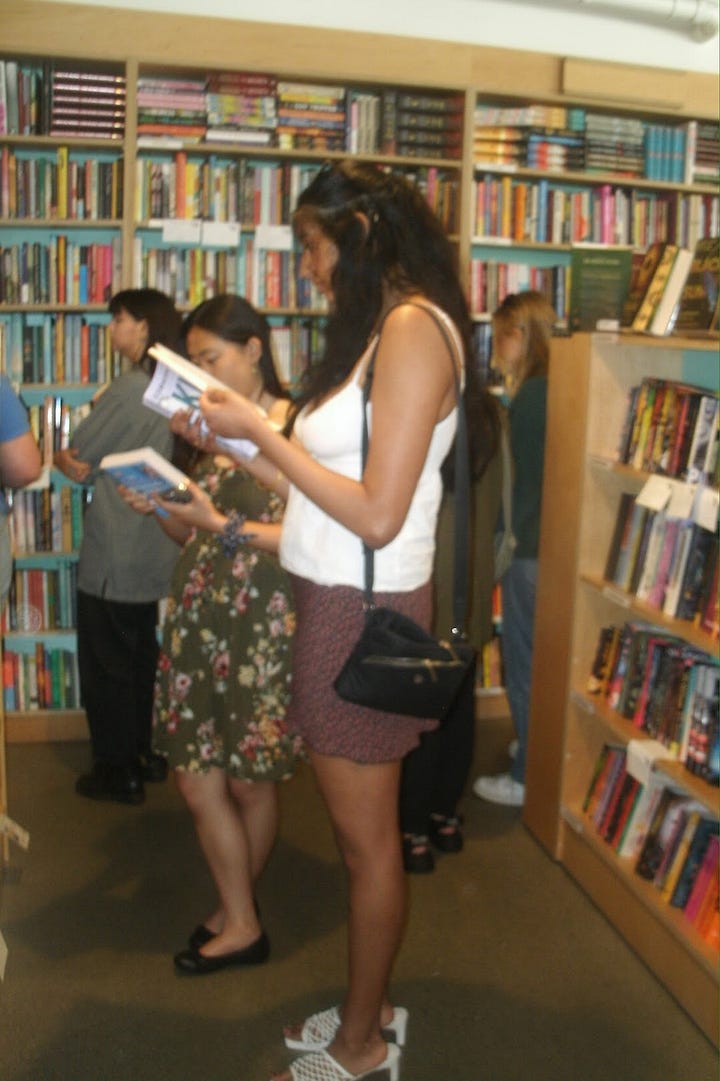
When To Read
Finding time to read is incredibly difficult. The trite advice of “read before you sleep” does not work for me, and I suspect it probably doesn't work for most people whose lifestyles differ from that of a middle-aged person with an office job.
I am in college. I am rarely cozied in bed by 9 pm in a matching pajama set after a ten-step skincare routine, ready to curl up with a good book. That is not my truth! Maybe when I’m old!
I struggled to read consistently for a long time because I would force myself to read before I slept, which was impossible, and then I’d get mad at myself for not being able to read! Here’s when I read!
When you’re stuck. Often when I’m studying one task for a really long time, I get burnt out and feel stupid. Whenever I’m stuck on my hamster wheel of failure, I pick up a book—an essay, something—and I read until I get bored and feel compelled to finish the task at hand. Reading when I’m stuck makes me feel productive and less dumb; I recommend. (Instagram reels could never!)
Weekend mornings. After I wake up from whatever I was doing, instead of scrolling on my phone (or to be fair, after), but I still don’t feel like doing anything, I will read for an hour or so until I muster enough will to be a productive young adult.
Do NOT read where you sleep. This might be specific to me; if it is, please ignore it. But whenever I read in my bed, thinking it will be such a relaxing, calming experience. I get a little too relaxed and end up napping for four hours, no matter the time of day.
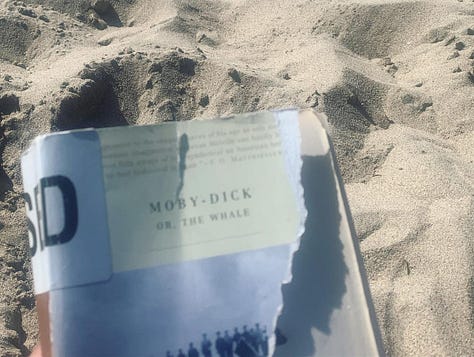
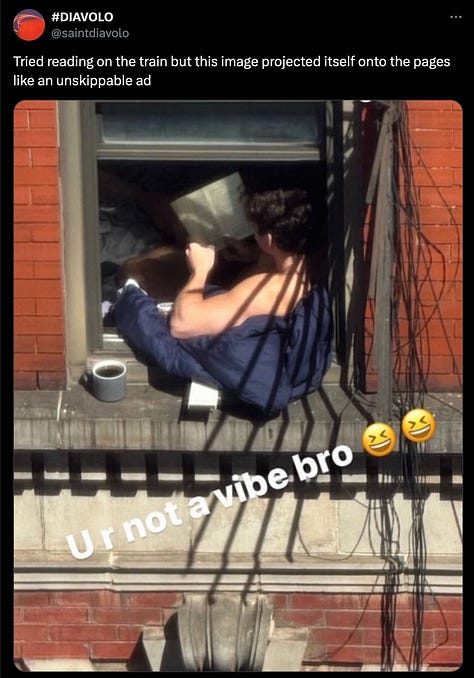
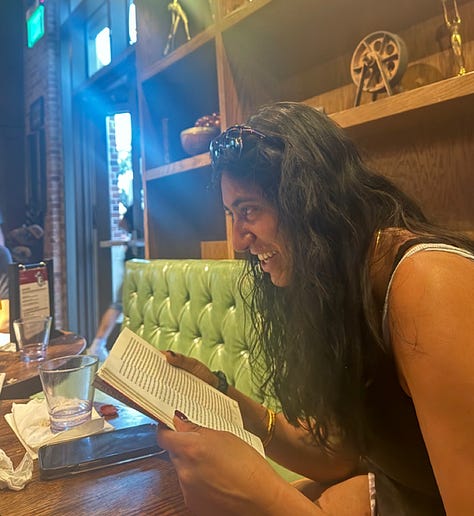
How To Feel Productive
One of my greatest struggles with reading is that, while I know it’s good for me, it rarely feels worthwhile because I’m not producing anything. I discussed this in depth in my last essay. And as silly as it sounds, I have accepted that while various factors have conditioned me this way, I’m better off recognizing and working with my nature rather than against it.
Keep A Notebook
I don’t take very intellectual notes. Oftentimes, I will just write down a sentence I like or a message that resonates. I have a little Travelers Journal where I write all of this down. It’s very messy and ugly, but the more I read, the fuller it gets, and it’s proof that I’m getting something out of reading. I keep the rules as lax as possible so I follow them.
Actively taking notes on my reading also helps me remember what I read, which was a huge challenge for me when I first started reading.
Keep Track of Your Reading
By documenting when I read, how many books I've finished, and what I got out of them, I can look back and actually see my progress—which feels pretty good! I really hate the user interface of Goodreads,3 but there are plenty of ways to track your reading: a piece of paper, Excel, notes app, whatever. Again, I keep it as simple as possible so I actually use it.
Make A Monthly Syllabus
Every month, I sit down for about an hour and compile a list of books I want to read. As a writer and engineer, reading makes me better—whether research for an essay, a technical primer, or exposing myself to different writing styles and genres through fiction.
My syllabus is a mix: essays, novels, non-fiction, and even academic papers.4 This way, when I’m in a reading mood, I already have an easily accessible, vetted list of good material.
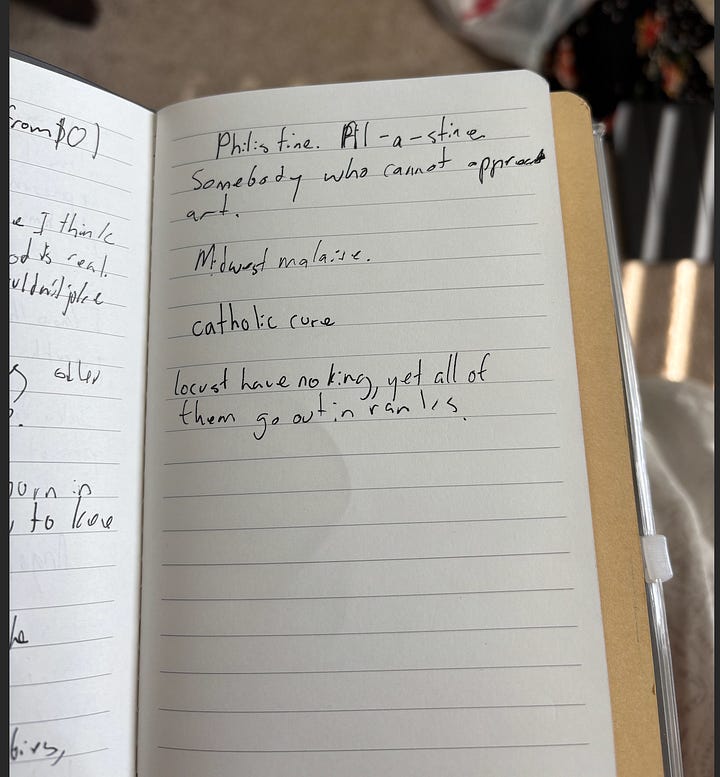
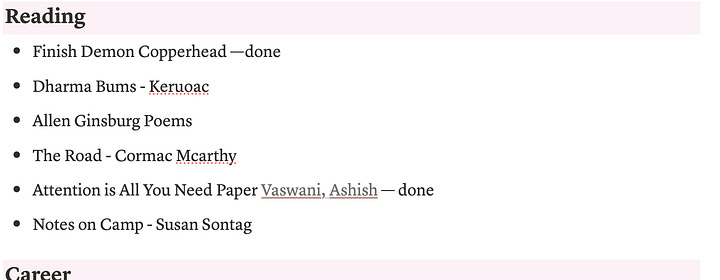
Just Read
It’s no secret that “people these days just aren’t reading,” but we shouldn’t be so hard on ourselves—not reading is not a personal, moral failing. Rather, it is a side effect of living in a world where we are all inherently dependent on systems that profit off our collective attention and stupidity. While it’s incredibly discouraging to be constantly occupied by brain-dead screen time, we are not doomed.5
Read, even if it’s just ten minutes out of your day. Engage meaningfully with a written text that requires you to think critically—instead of mindlessly scrolling while being spoon fed interpretation like a baby.
I’ve probably watched three good Instagram reels in my entire life. But I can list off and quote countless books that have fundamentally changed the way I think. Reading is good. In a utilitarian sense, and for that indescribable soul that probably exists within most of us.
All I have left to say is: just read. It’s so good for you. Even if it’s for a minute, and its mostly pictures. Reading is good. Please read.
Thank you for reading! I hope this was helpful. I am so passionate about this. I was also heavily inspired by Rayne Fisher Quan’s essay Poser ethics to write about my own, complicated relationship with reading. Give it a read!
Also please give recommendations of good book, essays, short stories that you love!
I LOVE ALL LIBRARIES EXECPT FOR LEAVEY LIBRARY
Do not worry about being called performative!
GoodReads hire me, I will make you a better UI. Please!
I’m actually a really chill, normal girl. I promise.
#hopecore



this is very helpful! needed to read something like this, thank you ✨✨